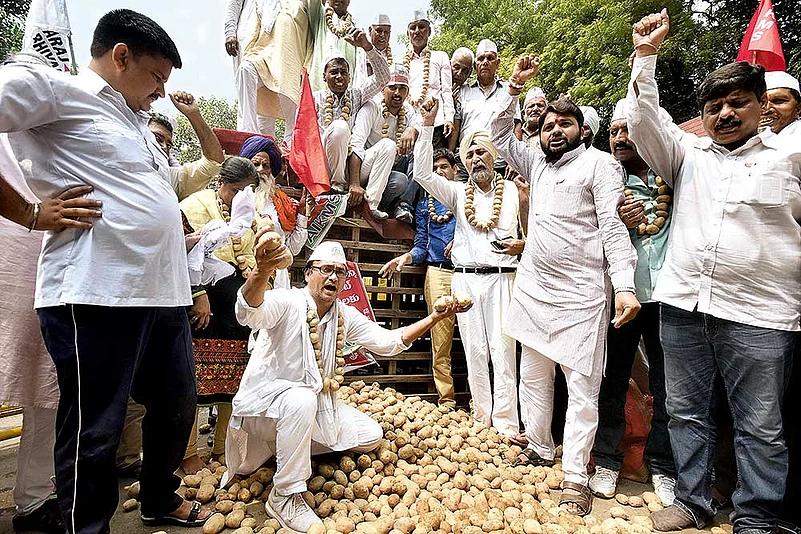For two decades, India has witnessed jobless growth. The previous four governments tried to correct the situation, but they failed because electoral considerations forced them to take wrong decisions. They missed the woods for the trees. The politics of jobs ensures that decisions do not lead to positive economic returns, either in terms of higher employment, or remunerative jobs. In their quest to create jobs, governments look at manufacturing as a panacea. This is because the impact of investments in factories is immediate. Everyone can see it; a few jobs are created too. Unemployment is also a perception game. Even if the ever-growing queue of the unemployed crawls, there is hope. Those far away from the counter feel their chance will come some day. Industrialisation leads to this perception effect, which is electorally beneficial to the rulers.
Sadly, this is a myopic approach. The broad picture proves that employment in manufacturing has either reduced, or only inched higher. The use of AI, robotics, and automation has killed jobs, rather than create them. The number of workers in the organised sector grows by 2-3 per cent a year. In retail, it has dropped. In mining, which is considered as a labour-intensive area, the trend is towards smart mines with minimal manual intervention.
Experts portend that technology will reduce jobs in manufacturing by 30-50 per cent. Thus, the governments need to focus on agriculture, rural industries, and services. But politics prevents this. In farming, the changes in labour market are “slow and gradual”, and the sector is saddled with deep-rooted issues. Any transformation will require time, and a long-term vision. Rural industries need a well-thought-out plan to compete with larger and organised counterparts. In services, the system needs to transform as most jobs are in the unorganised sector, and pay poorly.
No politician can afford to look that ahead, as she wants to win the next election. Hence, policy makers tend to concentrate on initiatives that will give instant results. This is evident from the policies on skill development. While it is a notable objective, what is required is to impart the skills of the future. The global trend in workforce is towards the ‘gig’ economy, a market that is “characterised by the prevalence of short-term contracts or freelance work as opposed to permanent jobs”.
Such a movement towards flexible work is visible in India. It will grow in the near future. Traditional jobs will be impacted by the gig economy. In such an eco-system, soft skills are crucial. In fact, their contours have changed. According to Deloitte, a consultancy firm, there is a need to equip people with social skills, integrated thinking, and ability to handle hybrid jobs. Future workers will need capabilities like empathy, communication, and judgement.
But the policy makers, given their priority to win elections, are unable to weave the future skills with existing ones. They tend to opt for schemes that impart traditional skills. This leads to low-paying and unattractive jobs. Most people, especially the young educated ones, tend to shun such work. Given their aspirations, and desire to earn as much as their peers, they choose to remain unemployed till they land desirable and well-paying jobs.
Another trick that politicians employ is to blindly chase targets. This helps them woo the masses in election campaigns—either as promises or achievements. Unfortunately, this race does not yield results. The higher number of skilled people does not automatically translate into lucrative employment. It can become meaningless in many cases, and lead to negative effects. It can lead to higher unemployment in the near future.
Consider the case of the information technology sector. During the late 1990s and early 2000s, neither the government nor the firms thought seriously about imparting future skills. Hence, the IT sector was saddled with severe labour shortages. Then the policy makers and the managements woke up, and made efforts to do so in huge numbers. India had a huge unemployed IT workforce because there weren’t enough jobs.
The need of the day is to have a multi-pronged strategy that can marry long-term goals with the near-term ones. Politics and economics have to go hand-in-hand.
(The author is a Delhi-based journalist)


























